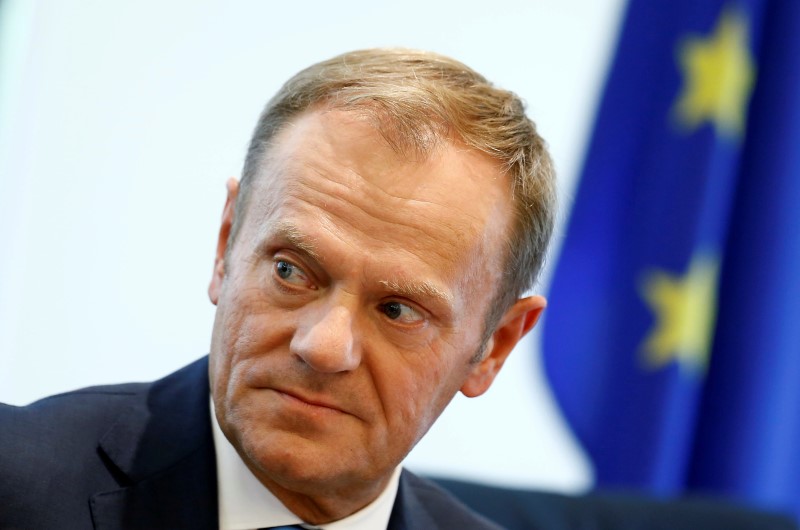By Jan Strupczewski
BRUSSELS (Reuters) - European Union leaders will talk on Sept. 16 about how to breathe new life into the bloc after Britain leaves, but they will not discuss the divorce terms until London officially declares its will to quit, the chairman of the meeting said.
Britons voted in a referendum in June to leave the 28-nation EU, prompting a drop in the value of the pound and a change of government. But it has yet to submit a formal notification to Brussels for the legal process to start moving.
Prime Minister Theresa May has said she would not send such a formal notification until next year so that she has time to come up with a negotiating stance.
Diplomats say Britain would prefer to have an idea of the terms of the divorce before filing for it -- a sequence EU officials have repeatedly rejected.
EU leaders will meet in Bratislava on Sept. 16 and the political consequences for the EU of the British decision to leave will top the agenda.
"We need to discuss what Brexit means politically for the European Union," Donald Tusk, who chairs the talks, said on Thursday in Luxembourg. Tusk made clear the discussions would focus on the future of the EU, not Britain.
"It is not our intention to talk about the UK in Bratislava or our negotiation strategy vis-à-vis the UK. Our position is crystal clear: there will be no negotiations without notification," he said.
Keeping the future of the EU and the negotiating strategy separate was a matter of principle, he said.
"It is there for a reason: to protect the interests of the members of the Union that want to stay together, not the one which decides to leave," he said.
May and her ministers said on Wednesday Britain would seek a unique deal with the EU that would involve controls on immigration as well as a good trade deal.
It is a difficult task, because Britain's access to the EU market is conditional on London's acceptance of the EU's four basic freedoms, including the freedom of movement of people -- which London wants curbed to address immigration concerns.
Tusk said tackling irregular immigration remained a problem for all the Union, even though much had been done to address it since last year, when the flow of hundreds of thousands of refugees and migrants from the Middle East and Africa reached crisis point.
"Our aim must be clear: Never again should we allow the chaos of 2015 to repeat in Europe," Tusk said, saying it was no accident that immigration was at the forefront of the "leave" campaign in Britain.
EU leaders are also to discuss dealing with terrorism, Tusk said and how to address EU citizens' concerns that globalisation is a threat to their economic well-being.
"We must help people to restore faith in the fact that the EU should serve them, guarantee their protection and share their emotions. All too often today, the European elites seem to be detached from reality," Tusk said.
